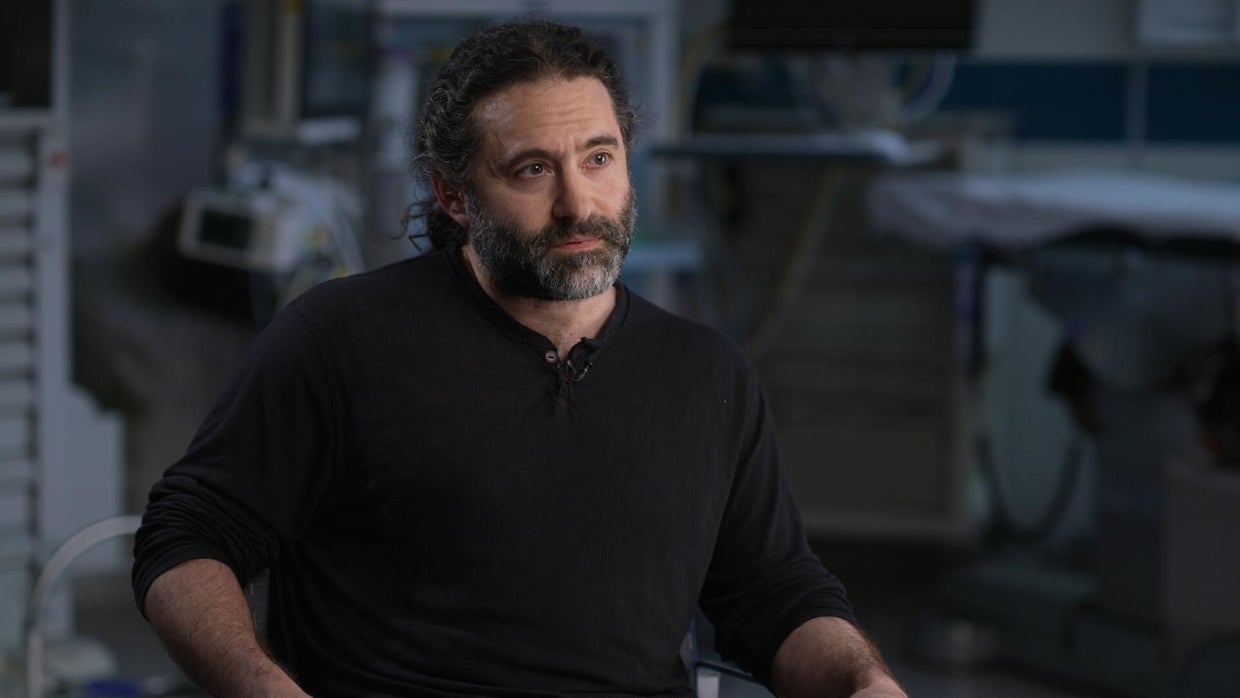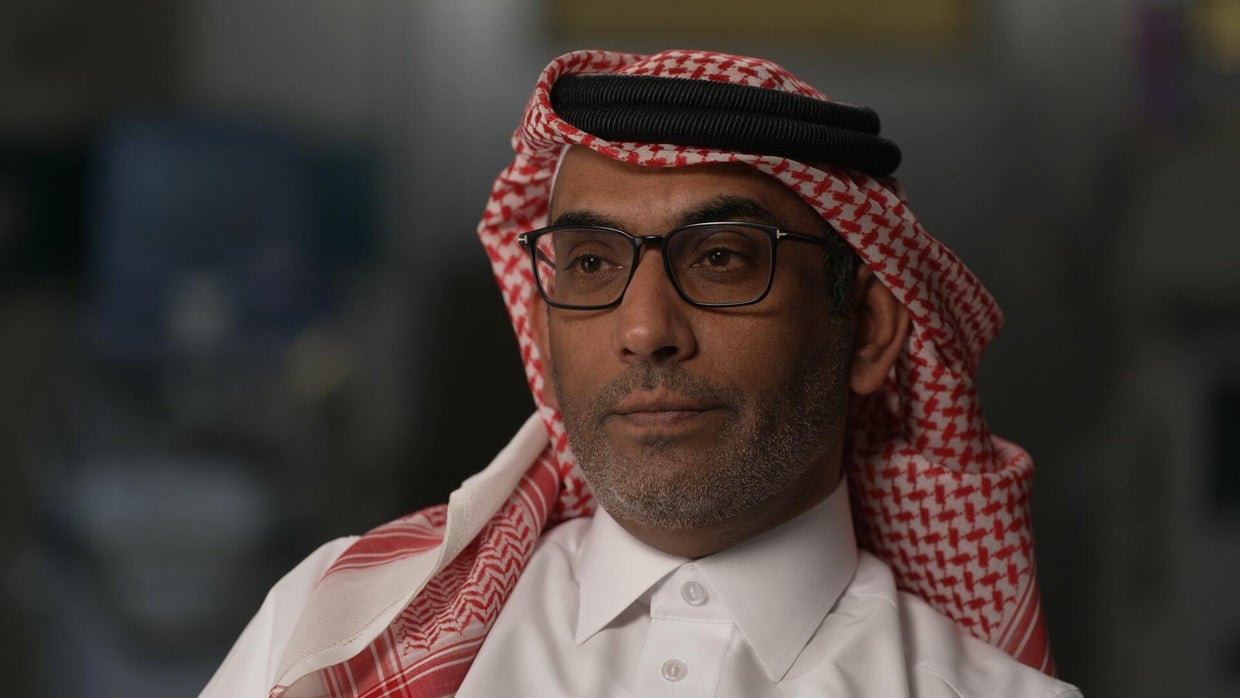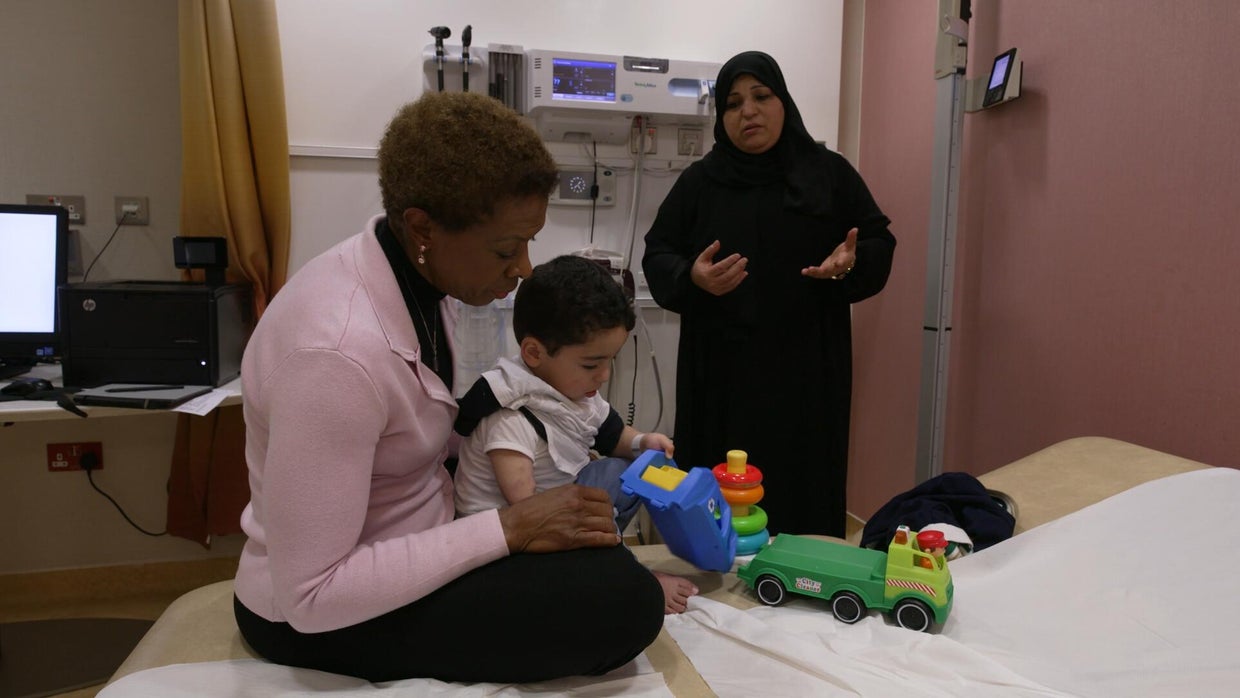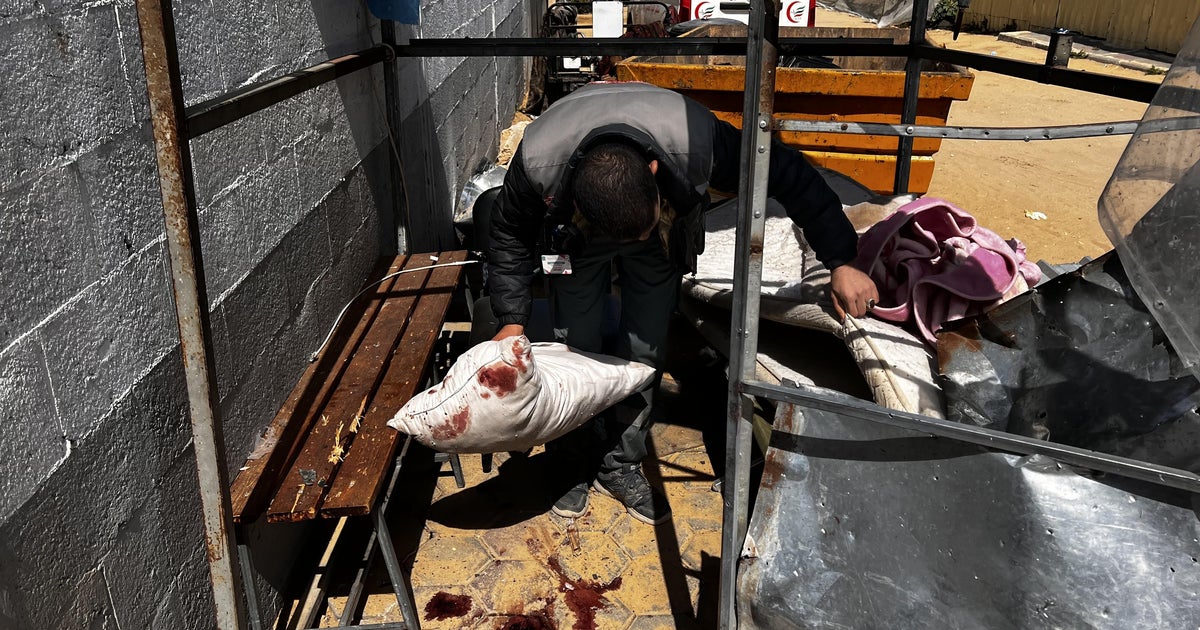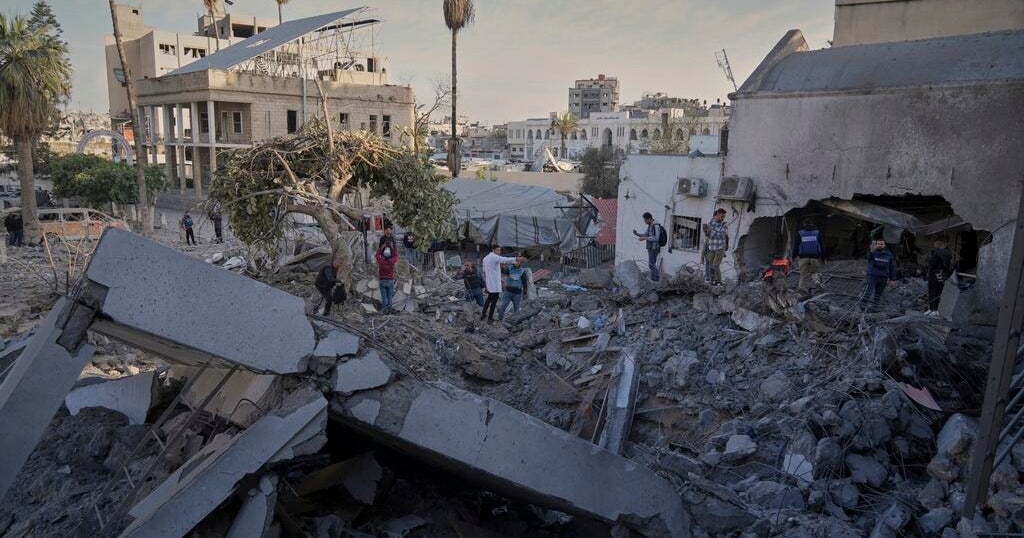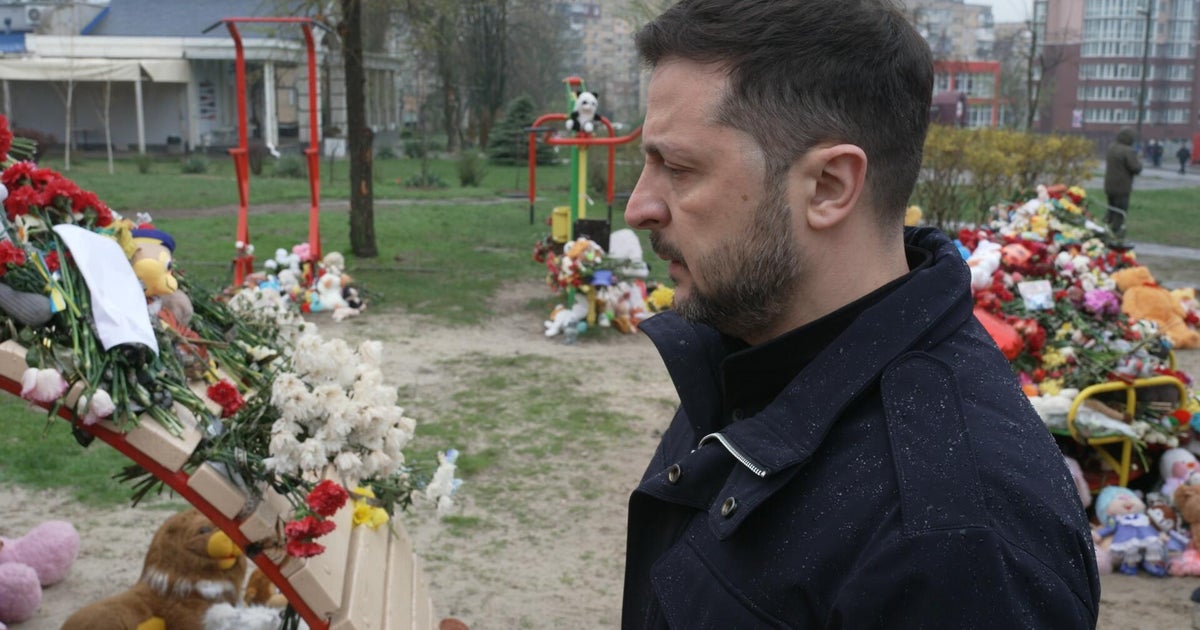Gaza's children struggle with life-changing injuries from ongoing Israel-Hamas war
Dr. Samer Attar is an orthopedic surgeon in Chicago, a professor of surgery at Northwestern, and recently, among the brave volunteers fighting for life in the war in Gaza.
Gaza is 25 miles long and home to two million Palestinians, descendants of those displaced in the 1948 creation of Israel. Gaza is ruled by a terrorist group called Hamas. And in 2023, Hamas attacked Israel — an atrocity—that, Israel says, killed 1,200 civilians, including 40 children, and captured 251. Israel's war to free its hostages and defeat Hamas has killed an estimated 50,000 Palestinians, 15,000 of them children, according to the Hamas-run Gaza Health Ministry. The U.N. says 92% of Gaza housing has been damaged. Last week on 60 Minutes, Lesley Stahl reported on the trauma and torture suffered by Israeli hostages.
Tonight, we have the story of the desperate fight to save Gaza's civilians through the charity of nations and the mercy of volunteers like Samer Attar.
That's Dr. Attar battling a stalled heart. The patient is a paramedic. An explosion near his ambulance killed his partner. But it's not just the paramedics, health care itself is dying in Gaza, with 33 hospitals damaged and the rest starved of supplies.
Dr. Samer Attar: Imagine 50 people showing up all at once, and 15 of them are dead on arrival. And they're all trying to get into the emergency room, and there's no place to step. And there's not enough beds, so you're working and resuscitating and operating on patients on floors smeared with dirt and blood. And you'd see just little kids shredded and twisted, their insides fallin' out-- dismembered, missin' arms and legs. I remember one little girl just pounding her fists on the floor, just refusing to believe that her mom was dead-- but they had to just forcefully pull her away to make room for --for incoming wounded because the pace of the wounded just doesn't stop. They keep coming.
Scott Pelley: When these patients come into the emergency room, what is it that you don't have?
Dr. Samer Attar: There's no sterility. Anesthesia is kind of a luxury sometimes. We had two kids come in, two young kids involved in an explosion. One was missing skin over half of his body. The other one, we did an emergency amputation of his leg. Both could've been saved. They were both brothers. But I remember the anesthesia doctor on the phone begging the blood bank for blood. And there's only so much blood to give, and the blood bank said, "Sorry, we don't have any more to give you. We just can't give you any more." And it was a Palestinian doctor. He collapsed to the ground crying, and he said he can't take it anymore because he's lost so many kids for something as simple as a blood transfusion. And that-- that kid just-- we just sat back and helplessly watched him die on the operating room table. And his brother was the same story. He could've been saved, but we didn't have blood. And he died the next day.
Scott Pelley: When anesthesia is a luxury, what do you do?
Dr. Samer Attar: You say you're sorry a lot. It's not something you ever really wanna be involved in.
Samer Attar is 49. His parents were Syrian doctors who immigrated to the U.S. in the '60s.
Scott Pelley (2016): How many trips in does this make for you?
Dr. Samer Attar (2016): This is number four.
We met Dr. Attar in 2016 as he volunteered in the Syrian war. He's also worked in Ukraine. This was his fifth mission to Gaza—on rotations that last two or three weeks.
Dr. Samer Attar: The bombs land so close, you feel the hospital shaking. At times the fighting and conflict is so intense you feel like the hospital will-- is gonna collapse on top of you. And there have been instances of hospitals that were attacked, that were invaded. So, there's really no safe space.
Gaza medical facilities and ambulances have been attacked 670 times, according to the U.N. But the Israeli military says Hamas uses hospitals for shelter and arsenals. Dr. Attar has worked in five Gaza hospitals.
Scott Pelley: The Israelis would tell you that they are attacking these facilities, when they do, because Hamas is using them as command-and-control centers.
Dr. Samer Attar: I just saw doctors and nurses and patients. I didn't see any tunnels. I didn't see any uniformed Hamas soldiers. I didn't see any hostages. If I did, I woulda said and done somethin' about it. But I didn't.
As for the paramedic we saw earlier, Dr. Attar did restart his heart but he doesn't know if the man lived. The doctor can't keep up with so many wounded.
Scott Pelley: It occurs to me that you have all of these patients in your memory, and you never find out what happened to them.
Dr. Samer Attar: Yeah. I remember-- I remember all of them.
A few of his patients are evacuated. Israel has permitted a total of about 7,000 through its blockade. More than 300 children were medevaced by the Gulf state of Qatar—in an act of charity that saw the patients escape the poorest place on earth for one of the richest. Qatar's $8 billion Sidra hospital opened a ward for the Gaza children. Dr. Mansour Ali is head of surgery.
Scott Pelley: How important was it to some of these patients to get out of Gaza?
Dr. Mansour Ali: Some of these patient is life and death situation because if they stayed there-- they would have died from complication of their injuries from wound infection—and septic shocks and thing, they could have died.
One of those saved is 2-year-old Sanad. Sanad's grandmother, Marwa al-Arabi told us that their neighborhood was bombed one year ago. Sanad's face and tongue were torn apart. He lost one arm.
Marwa al-Arabi (speaking Arabic/Pelley translation): Eleven people were killed, SHE TOLD US, including my uncle, my brother-in-law, and my daughter's children. All my children were injured.
Scott Pelley: The first time that you saw Sanad after he was injured, what did you see?
Marwa al-Arabi (speaking Arabic/Pelley translation): I was hysterical. The sight was so horrifying. I didn't think he would survive. I thought he was taking his last breath.
Sanad and the others have been recovering in Qatar about a year.
Scott Pelley: How many of you lost your home?
(hands raised)
Scott Pelley: Almost all of you.
Scott Pelley: How many of you lost one of your parents?
This girl suffered a traumatic head injury, repaired with a plate in her skull.
Girl (speaking Arabic/Pelley translation): They bombed my grandfather's house. SHE TOLD US. I was about to leave the house when a piece of shrapnel hit my head. Two of my brothers were killed along with my grandfather and grandmother.
Fifteen-year-old Lama told us that she was unconscious in a Gaza hospital for a week.
Lama (speaking Arabic/Pelley translation): I didn't know what had happened, SHE SAID. I learned my leg was amputated. It was a month before I learned that my sister and brother had been killed.
Many of the children are patients of Dr. Lisa Thornton, chief of pediatric rehabilitation at Sidra.
Dr. Lisa Thornton: This was my first time ever having any experience with war trauma. I'm from Chicago. I've seen a lotta trauma-- a lot of violent trauma, but I had never seen anything like this.
Scott Pelley: What can you do to rehabilitate them?
Dr. Lisa Thornton: Our goal is to get them back to childhood. And really, you know, the primary occupation of childhood is play. So, we want to be able to get these kids back to being able to play.
Scott Pelley: But if you have a child with multiple amputations, how can you achieve that?
Dr. Lisa Thornton: First of all, we're blessed that children are resilient, right? So, if they're not in pain, and they can move, they often figure it out. I had one young man who, sadly, both of his arms were blown off, so he had amputations here at the shoulders, and he was nine years old. And within a few weeks, he was using his feet.
Scott Pelley: What has he been able to do with his feet?
Dr. Lisa Thornton: Well, he can feed himself. He can write a little bit, 'cause you can hold a pen with your toes. It's pretty amazing.
This is that young man steering a scooter—and remembering the joy of play.
Scott Pelley: What gives you hope?
Dr. Lisa Thornton: Well, the kids. You know, the children give me hope. I mean, they're playful, and they're energetic, and they're surviving. I believe that the human spirit is incredible, and the spirit of children is more than any of us have as adults.
Scott Pelley: For every child that is evacuated from Gaza, how many are left behind who need that kind of care?
Dr. Samer Attar: Thousands. Thousands.
Those were the patients in the mind of Samer Attar when we met in qatar. He told us many that he recalls were not wounded at all-- but starving—because of the blockade.
Dr. Samer Attar: I remember a kid called Karem. He was suffering from significant malnutrition. There just wasn't enough food and water where his mom was at, and he was in the ICU. And his mom asked me to come meet him. And-- I started talking to her and then the nurses told me that Karem had been dead for over an hour. Mom just refused to let the nurses take away his body. And she kept showing me videos of what he used to look like, and how he was so playful, and how he was so kind. And she just couldn't believe that because they didn't have enough food and water, he didn't make it.
Israel's prime minister has said his country ensures "humanitarian assistance reaches those in need…" But the U.N. says Gaza is at risk of famine and two million are homeless. Thousands have protested in Gaza calling for the end of the Hamas regime.
Scott Pelley: There's a lot of suffering.
Dr. Samer Attar: Yeah, I can't stop bombs. I can't rescue hostages. I can't solve this crisis. I can't repair the world. But I can stand next to you. I can live amongst you. I can share your grief. I can feel your fear. I can serve your community. I can bear witness to your suffering. And then just make some noise about it. And it's not much, but it beats burying your head in hatred and violence and ignorance.
This violence began with the attack on Israel. In a two-month ceasefire earlier this year, many Israeli hostages were released. But Israel believes 24 living hostages remain. In our story last week, former hostages told Lesley Stahl of torture. Yarden Bibas spoke of Hamas terrorists murdering his wife and two children in cold blood. Now, Israel is pressing its military campaign and has cut off nearly all food and humanitarian aid. In the 19th month of suffering, there is no end in sight.
Produced by Nicole Young. Field producers, Selin Özdemir, Tariq Shaweesh. Associate producer, Kristin Steve. Broadcast associate, Michelle Karim. Edited by Michael Mongulla.

